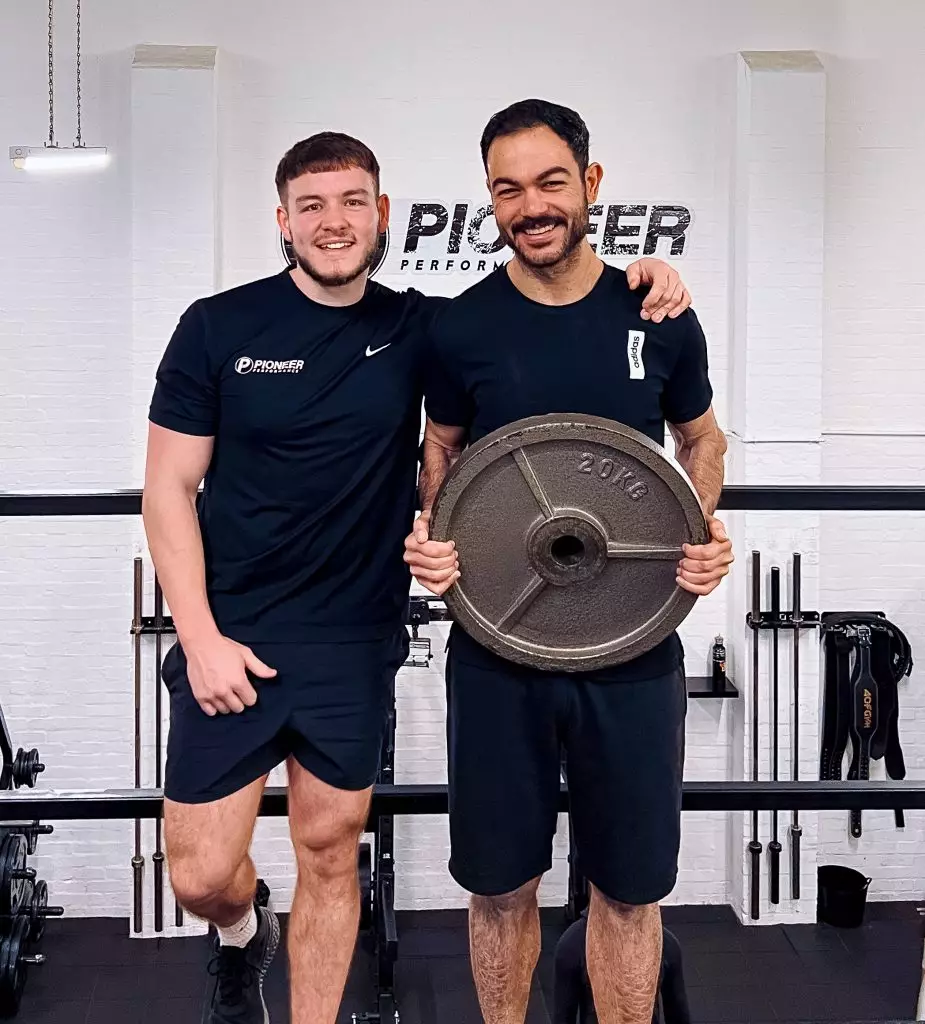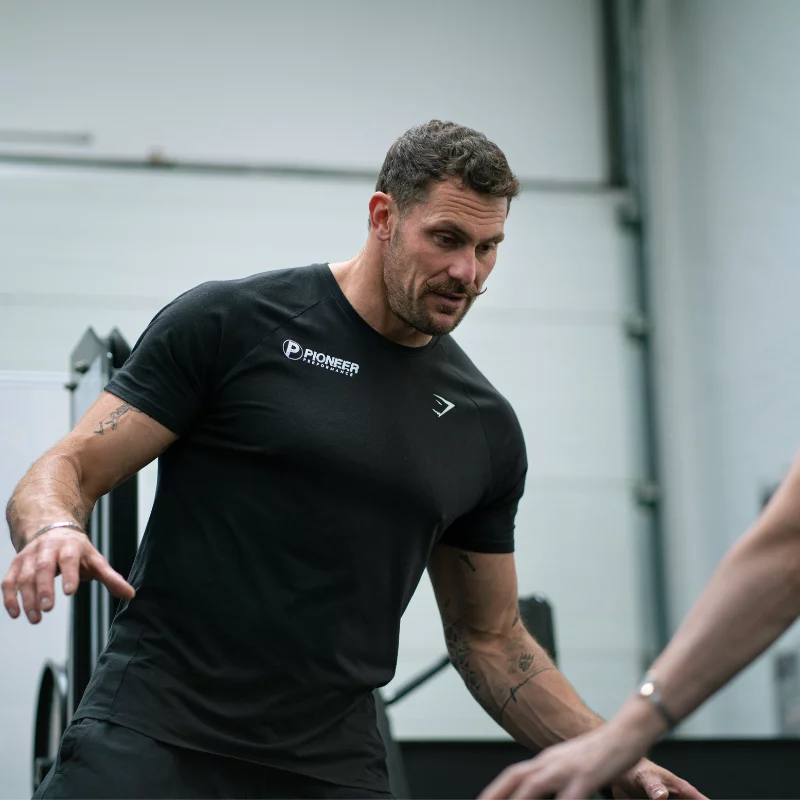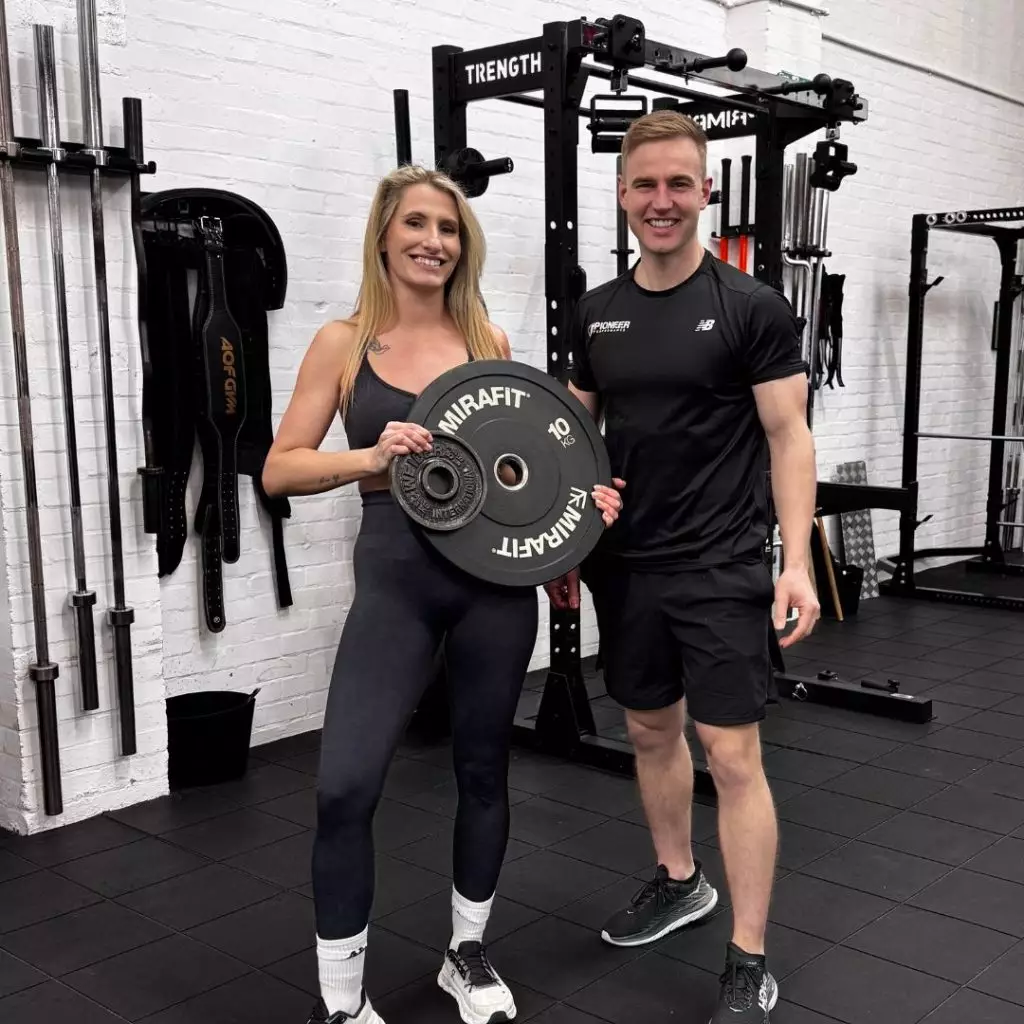
If you're trying to lose weight and body fat, you've probably been bombarded with conflicting advice. From social media or online articles pushing extreme diets to fitness influencers showing off their latest quick-fix meal plans, it's no wonder people feel overwhelmed.
The truth? Fat loss isn't very complicated, but it's the psychology of eating can make it feel so hard.
The good news?
Once you understand the fundamentals, you can take control of your nutrition without feeling deprived or stuck in a cycle of yo-yo dieting.
At Pioneer Performance, we specialise in helping people in Newcastle upon Tyne get into their best shape without restrictive diets or unrealistic meal plans. In this guide, we'll break down everything you need to know about eating for fat loss—in a way that actually works for your life.

Quick Answer: Calories always count—but you don’t always have to count them.
Most people overcomplicate fat loss. The simple truth is this: if you consistently eat fewer calories than your body burns, you will lose fat, whether you count calories or not.
But here’s where most people go wrong:
They guess their portion sizes and end up overeating.
They jump from one diet trend to another without a structured approach.
They believe "healthy eating" alone is enough, but still consume too many calories.
If calorie tracking feels overwhelming, there are alternative strategies that naturally help you eat less:
- Prioritise high-protein, high-fibre foods—they keep you full and reduce cravings.
- Use an eating window—reducing snacking and mindless eating.
- Reduce portion sizes strategically—without feeling deprived.
At Pioneer Performance, we help clients build sustainable eating habits that work for their lifestyle, so they can lose fat without constantly stressing about numbers.

Quick Answer: It depends on your height, weight, activity level, and goals.
A simple way to estimate your daily calorie needs is to use your height as a reference. Here's a quick formula:
Start with 2,000 calories and add 70 calories per inch over 5ft.
Example:
A 5ft 11in man → 2,770 calories for maintenance
A 5ft 6in woman → 2,420 calories for maintenance
To lose fat, reduce this number by 10-20% and monitor your progress. If you’re not seeing changes, adjust your intake or activity level accordingly.
TIP: Instead of obsessing over a perfect calorie number, focus on consistency and sustainability—a small calorie deficit over time leads to lasting fat loss.
Want a personalised nutrition plan? Our Newcastle-based personal trainers will help you calculate your exact calorie needs and set up a realistic fat-loss strategy.

Quick Answer: No—fat loss is about consistency over time, not daily perfection.
Think of calories like a weekly budget instead of a strict daily allowance. Some people find it easier to have higher and lower calorie days to balance social events, workouts, and hunger levels.
A simple approach is calorie cycling:
- Lower calorie day → Helps create a bigger deficit.
- Target calorie day → Keeps fat loss steady.
- Higher calorie day → Prevents extreme hunger and makes the diet easier to stick to.
This flexibility prevents binge-restrict cycles and allows real-life balance while still progressing towards your goals.

Quick Answer: Both matter—but calories determine weight loss, and food quality determines how you feel while losing weight and improves bodily functions.
If you eat too many calories, even from "healthy" foods, you won’t lose fat.
If you eat low-quality foods, even in a calorie deficit, you won’t feel energised, perform well, or stay full.
- Eat whole, nutrient-dense foods—they improve energy, digestion, and satiety.
- Don’t demonise any foods—flexibility makes dieting sustainable.
- Balance macros properly—protein, carbs, and fats all play a role.
Fat loss is not just about numbers—it’s about finding a way of eating that works for your body and lifestyle.
Quick Answer: Extremely important. Protein helps stay full, and maintain / build muscle mass
If you're only focusing on calories and not protein, you're missing a key part of fat loss.
- Protein keeps you fuller for longer—reducing cravings.
- It has a high thermic effect—your body burns more calories digesting it.
- It protects muscle—preventing metabolism slowdown.
TIP: Aim for 1.6-2g of protein per kg of body weight per day. Example:80kg person → 128-160g protein daily
Protein-rich foods include: Chicken, salmon, eggs, Greek yoghurt, lean beef, and protein shakes.

Quick Answer: No—carbs aren’t the enemy.
Fat loss happens when you eat fewer calories, not when you remove carbs.
- Carbs provide energy—fuelling workouts and daily activities.
- They help with muscle recovery—keeping your body strong.
- Fibre from carbs improves digestion—supporting gut health.
If carbs make up a large portion of your diet, you may need to reduce them slightly to create a calorie deficit—but complete elimination is unnecessary. Balance is key!
Losing fat doesn’t have to be complicated—but having the right guidance, structure, and accountability makes all the difference.
At Pioneer Performance in Newcastle upon Tyne, our expert personal trainers help you:
✅ Create a personalised fat-loss plan tailored to your body & lifestyle.
✅ Build habits that make dieting effortless—without extreme restrictions.
✅ Train smarter, not harder—so you can see results that last.
Want a nutrition plan designed just for you? Book a FREE consultation today and let’s get you on the path to sustainable fat loss.
If you’re interested in personal training or being coached at Pioneer, get in touch by completing the below form.